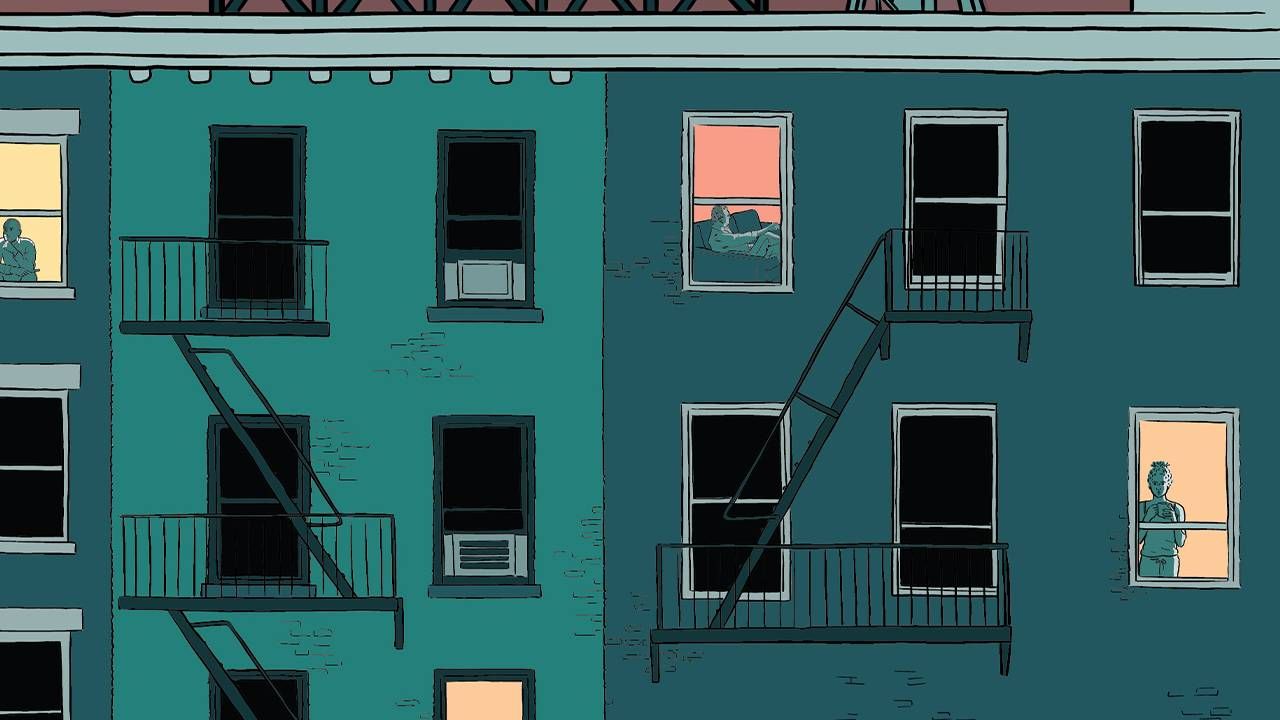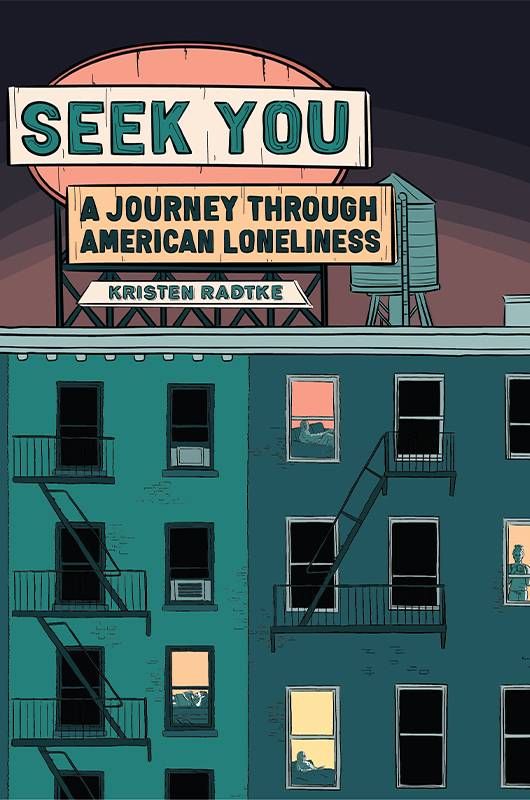Tracing the Lonely Path of Our History
An interview with the author of ‘Seek You: A Journey Through American Loneliness’
What does the laugh track for "Seinfeld" have to do with loneliness?
In the 1950s, around the time that suburban sprawl was leading people to move away from cities and further apart from one another, the sitcom laugh track was developed so television viewers could enjoy an odd sense of camaraderie.

Sound engineer Charley Douglass created a "sweetening" device which "contained hundreds of distinct laughs, all designed to sound like real people, or prototypes of real people… the goal was to create the sounds of a room that the viewer wanted to be inside." The device has been used for many sitcoms over the years.
Through the audio cues of hearing others laughing, "the laugh track functions by coaxing a solitary viewer into a sense that she isn't, in fact, alone."
This is one of many interesting observations on the multi-faceted subject of loneliness in "Seek You: A Journey Through American Loneliness," by author and illustrator Kristen Radtke. A graphic book, with full-color illustrations which are moving and provocative, it is a fascinating mix of memoir, observation, history and science, delving deeply into many aspects of loneliness, both familiar and unexpected, that are so firmly rooted in our American way of life.
"I think the book is a hopeful book, which is what I wanted it to be."
The story begins with a glimpse into the life of Radtke's father, a quiet man who spent many nights during his childhood operating his ham radio. He would make CQ (seek you) calls, which is jargon used by radio operators around the world, basically asking the question, "Is anyone out there?"
Radtke, 34, reflects on her personal experiences of loneliness after moving to New York City in her twenties ("Perhaps we see loneliness in others simply to feel less lonely ourselves.") She also dives into the behavioral science of loneliness; one of many examples she shares is the story of Dr. Harry Harlow, a psychologist from the University of Wisconsin who conducted controversial research with rhesus monkeys in the 1950s and 60s. Radtke also illuminates other surprising aspects of Harlow's personal life and the effects on his career.
Radtke began work on her book in 2016, finishing it three years later, just before COVID-19 struck worldwide. In the opening pages, she alludes to the encroaching isolation of the pandemic (in a segment written early in 2020) saying, "I don't know what loneliness will feel like for you when you're holding this book."
Next Avenue recently spoke with Radtke, who is also the art director and deputy publisher of Believer magazine and the author of "Imagine Wanting Only This." She lives in New York City.
The interview has been edited for length and clarity.
Next Avenue: 'Seek You' feels like a science book, pop culture report and memoir all in one. How did you decide where you wanted the story you were telling to be more general or educational in nature and where you wanted it to be more personal?

Kristen Radtke: I think it really happened organically. If I have my way, I don't really write about myself. Some of the early readers of this book said to me, 'All of this research is great, but where are you?' so I ended up adding more stories about my life and my own experience.
I didn't really think of this as a personal journey, or a memoir, other than in the sense that all books are sort of a memoir project, because you invest so much of yourself in it.
I think the book is a hopeful book, which is what I wanted it to be.
In addition to the section on laugh tracks, another of the many cultural touchpoints you highlight in regard to loneliness is Casey Kasem's 'Long Distance Dedications' during his American Top 40 radio show. As you write, 'I felt comforted by their stories. I'd experienced so little, and their letters were an outlet for the misplaced pain I didn't have an excuse for.'
Listening to this program on the radio was such an intimate experience. You were hearing all these stories of these strangers which were so beautiful and moving – and they were just being broadcast out into the air for anyone to hear. You could find out what other people valued in their lives, without ever meeting them.
As you make clear in the book, loneliness can affect everyone, of any age. Tell us a little about why you believe that to be true.
America is a very lonely country. We value independence and physical space — that's really baked into our foundational sense. We consider ourselves self-sufficient, and we can figure things out on our own.
But we also have to work hard to reach out and support one another. Loneliness is contagious.

For instance, we might have a friend who has gone through a break-up or loss, and they retreat. Then we find ourselves feeling rejected. We have to push past those feelings, we have to keep those bonds alive. Because if we start pushing people away too, it's a self-fulfilling prophecy – we'll be lonely.
There's a book I reference in 'Seek You' called 'Bowling Alone' by Robert Putnam; it was written in 1999. He talks about how the middle tier of our community relationships are falling away – the PTA, bridge clubs, groups like that. This is where we'd have acquaintances, which is different from our most intimate friends. But we need both kinds of relationships in our lives. If we want to borrow a cup of sugar from our neighbor, we have to know their name.
'Seek You' was written before the pandemic, but in the months since you finished the book, loneliness and isolation have become even more top-of-mind. Do you think that will change how people view the book?
It's certainly a weird coincidence, but the problem of loneliness didn't just appear during the pandemic. And loneliness will persist. But hopefully, because of the pandemic, we can be more open about the emotion and reach out to each other.
Tackling the topic of loneliness must have been daunting at times. What were some of the challenges? And what has been the most satisfying part of the process so far?
Sometimes, I struggle with the scope of a project. I have self-doubt, and think 'no one will want to read this.' So, I have to push past those feelings, just like you have to push past negative feelings when you're feeling lonely.
I will say the most rewarding part was the day my dad was fully vaccinated, and he flew out to see me. We hadn't seen each other for over a year. He didn't know that I had dedicated the book to him, and I was so happy to give him his copy and share that with him.


